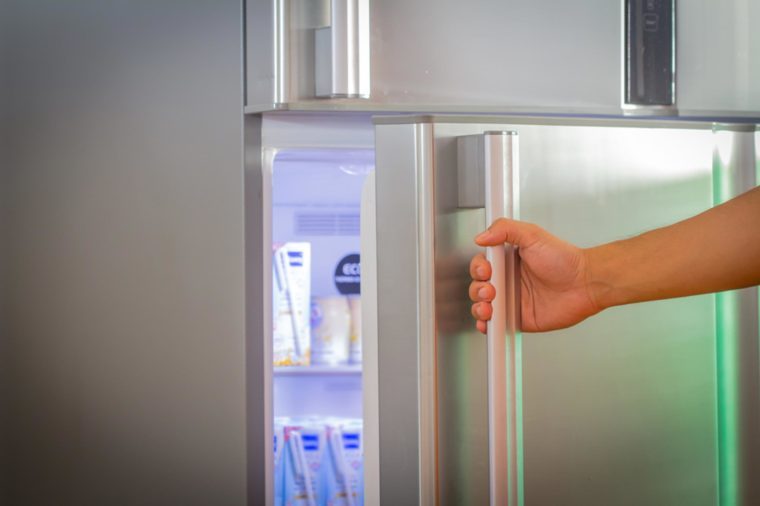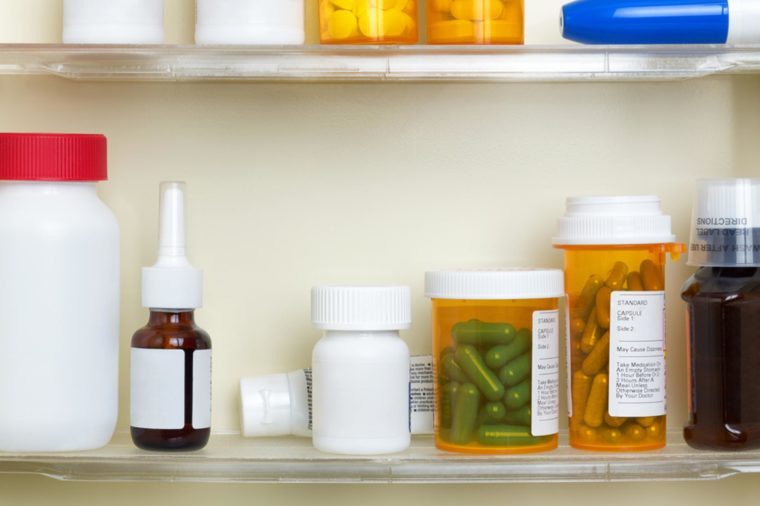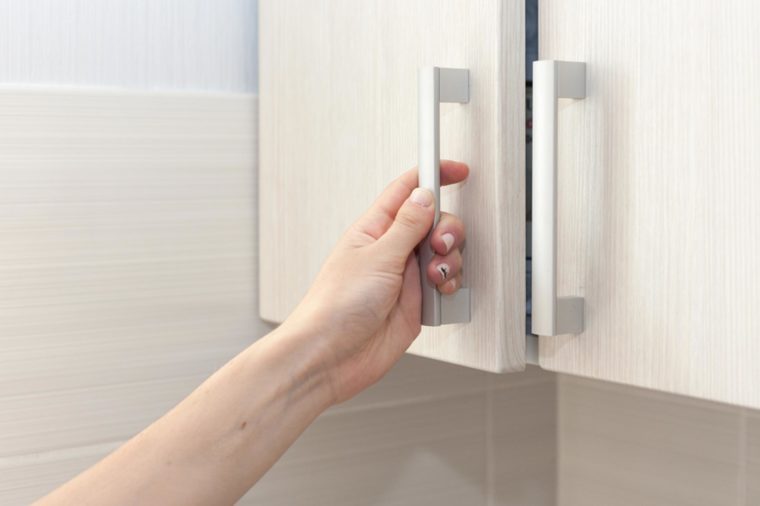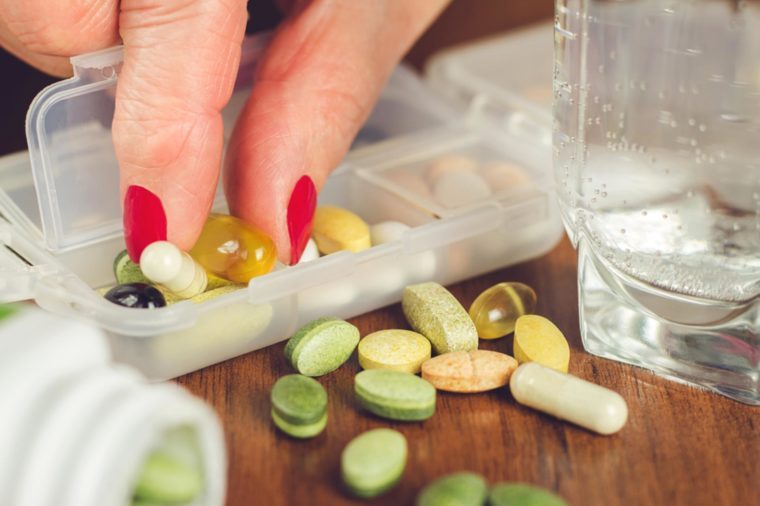How To Store Vitamin D
This Is How You Should Be Storing Your Vitamins and Supplements
Refrigerator or counter? Kitchen or bathroom? It really does make a difference where you store your vitamins and supplements. Learn the basics to keep your pills from degrading.
 BDKKEC072/Shutterstock
BDKKEC072/Shutterstock
Forego the fridge
Before the question of storing vitamins and supplements comes into play, it's important to figure out which ones you really need to take in the form of a pill. For example, these vitamins aren't worth your money and can even be dangerous. Only after you've done your research and talked to your doctor should you purchase and safely store the pills. For optimal potency, vitamins and other dietary supplements should be stored in a cool and dry place. A refrigerator is certainly cool, but it's also full of moisture, which can reduce vitamins' shelf life and effectiveness. The exceptions to this rule are supplements whose packaging specifically recommends refrigeration.
 David Smart/Shutterstock
David Smart/Shutterstock
Bypass the bathroom
Here's your dose of irony for the day: You should never keep medication or supplements in your medicine cabinet. Storing your vitamins in the same small room in which you shower means exposing them to heat and humidity on a daily (or at least frequent) basis, even if they're stashed away in the medicine cabinet. Once you've moved the drugs to a safer location, follow these steps to give your medicine cabinet a much-needed makeover.
 nd3000/Shutterstock
nd3000/Shutterstock
Reconsider the kitchen
Since vitamins are often taken with food, it seems only logical to keep them in the kitchen. Just check with a doctor to see if there are any foods you should avoid while taking certain supplements. (This is also one of the most important questions to ask before taking prescription meds.) The problem is that the temperature and humidity in your kitchen rises and falls as you use the oven and stovetop. If storing your vitamins in close proximity to your food is important, opt for the dining room or breakfast nook instead.
 brizmaker/Shutterstock
brizmaker/Shutterstock
Think high and dry
Nutritional supplements may seem (or even be) "natural"—like these natural supplements that can clear up your acne—but they're also potentially poisonous when taken in high doses. In fact, they're the number one cause of household poisoning. Store them as you would any medication, in their original containers and out of reach of children. Be sure to avoid any cabinets or shelves that are close to windows or heating pipes where temperature and humidity might fluctuate.
 Farlon O/Shutterstock
Farlon O/Shutterstock
Don't redistribute
Another reason to keep vitamins in their original containers is that they may require a specific type of packaging for optimal potency. Some supplements lose their effectiveness when exposed to light, for example, and must be stored in opaque or dark-colored containers. Avoid transferring your vitamins to larger or smaller bottles for convenience or combining them with other supplements in the same container. While you're at it, make sure you're not making any of these vitamin mistakes either.
Originally Published: September 13, 2017
Sign Up For Our Newsletter
Get healthy-living advice delivered to your inbox!

Source: https://www.thehealthy.com/nutrition/vitamins/how-to-store-vitamins-supplements/

0 Komentar